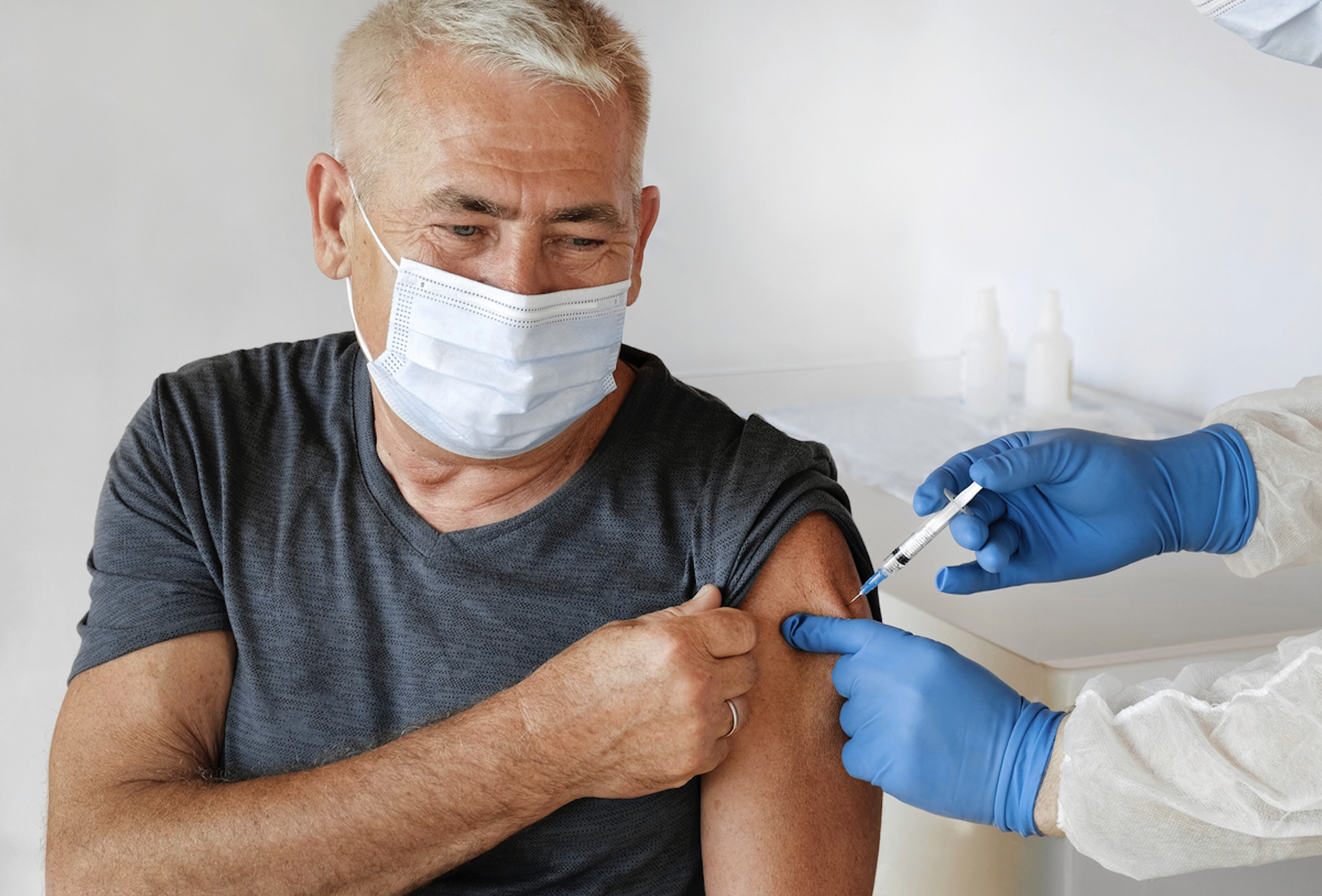Protect And Defend: Why You Need The Updated COVID Vaccine Now
October 18, 2023

So, have you “armed” yourself with the latest COVID-19 vaccine? As we previously reported, there is a new COVID-19 vaccine that will protect you from the Omicron variants now circulating. The most recent data reports that about 7 million Americans have already rolled up their sleeves and been vaccinated against the latest COVID variants. If you’re not one of those 7 million, experts suggest now is the time to get the new vaccine. The maximal protection against infection and serious illness comes in the first 3 months you are vaccinated, so getting the vaccine in October should keep you protected until at least mid-winter. If you think it’s no longer necessary to be vaccinated against COVID-19, you’d be wrong. In the last 1 ½ years over 200,000 people have died due to COVID, including over 600 children below the age of 19. COVID-19 still poses a serious risk, especially if you are older, immunocompromised, or have other comorbidities. And even if you are healthy, you can still be stricken and experience serious illness, especially if you are unvaccinated. If you do come down with COVID, pull up your blanket and follow these directions.
If you’re still holding out, maybe we can convince you that it’s time to roll up your sleeve. There’s no doubt that the COVID-19 vaccine is not an absolute guarantee that you won’t get COVID. While it definitely reduces your chances of becoming infected, it doesn’t entirely eliminate the risk. But what it does do is vastly reduce your risk of becoming seriously ill, hospitalized or even dying as a result of COVID. If you are in one of the higher-risk categories mentioned above, that’s a big deal. There is even data to suggest that many older adults underestimate their risk for COVID, given that they generally feel healthy. But regardless of how you feel, you may still be at risk, especially if you’re one of the 70% of the population that’s overweight or obese. Further, once your risk of becoming infected declines, so too does the chance that you could transmit the virus to someone else, including others who are also vulnerable. It’s not so clear from just appearance as to who is vulnerable to COVID, but while protecting yourself with the vaccine, you may also be protecting other loved ones and friends who themselves may not totally understand their risk for catching COVID.
There is also mounting evidence that protecting yourself from COVID with the vaccine may also reduce your risk of getting long COVID symptoms. Every time you become infected with COVID your risk of suffering long-term consequences rises. So if you’ve already had COVID you want to try to lower the risk of acquiring it again. There’s even data to suggest that vaccinations may help alleviate existing long-term COVID symptoms.
Are you worried that you’ll feel sick if you get the COVID-19 vaccine? For example, many people mistakenly refuse to take the flu vaccine because they fear they will actually get the flu from the vaccine itself. The flu vaccine will not give you the flu, and the new COVID-19 vaccine will not give you COVID. But it is possible that you’ll feel quite ill for a few days following either of these vaccines. Why is that? In fact, what it means is that your immune system has been activated to produce virus-fighting antibodies, so the symptoms you may experience are just the result of a more activated immune system, not the actual effect of the virus. In fact, it is believed that the greater the immune response you have to the vaccine (with possible unfortunate side effects) the reality is that the vaccine is actually working and you may get even better protection. There’s a lot of misinformation out there about the COVID-19 vaccine and its value and benefits. To be clear, while you should discuss the vaccine with your own physician, the reality is that experts see great upside and virtually no downside for those who receive the new COVID-19 vaccine. The protection you gain, and the reduced risk of transmitting the virus to someone else, can be potentially life-saving. For more on the vaccine and the impact of COVID-19 on older adults and their loved ones, click here.







